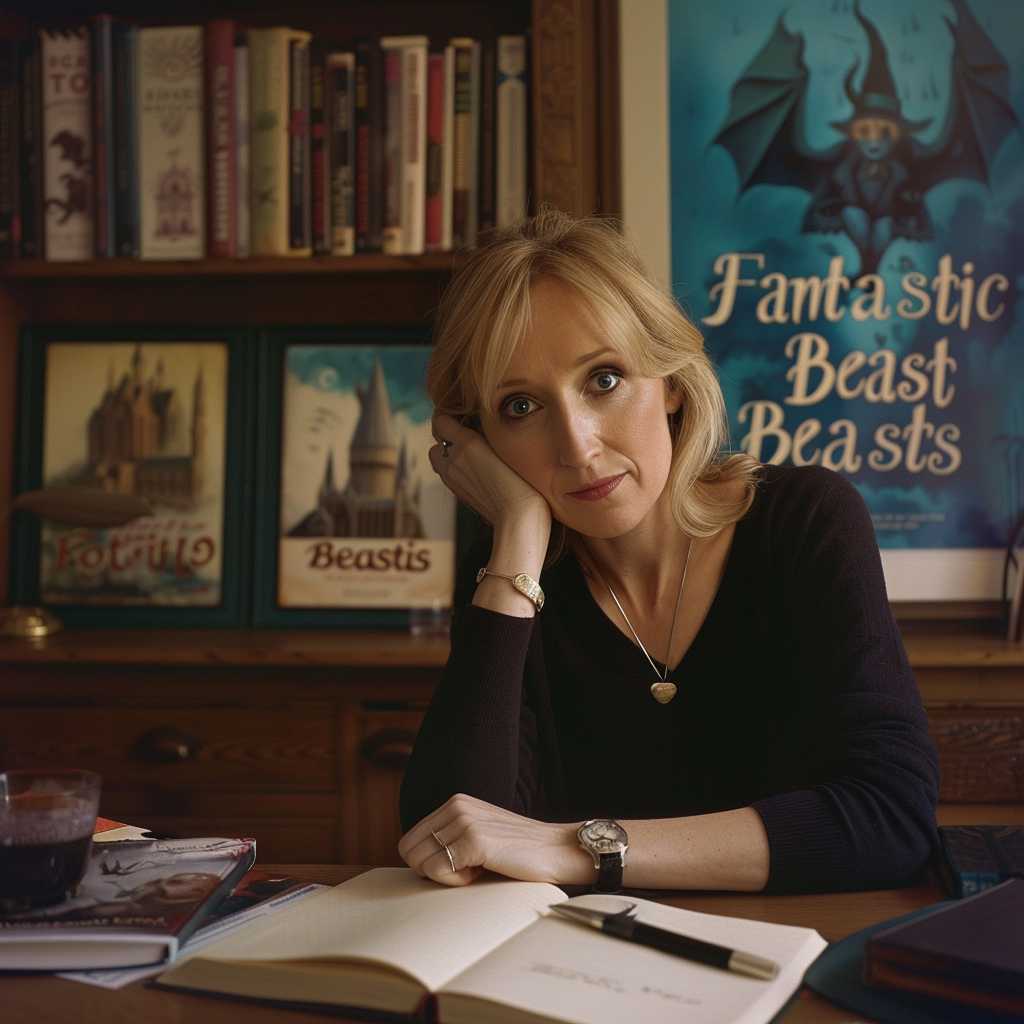The Life, Legacy, and Controversies of J.K. Rowling
J.K. Rowling, the British novelist best known for conceiving the wizarding world of Harry Potter, has become a household name over the past two decades. Her story from a struggling single mother writing in Edinburgh cafés to one of the world’s most successful and influential authors is not just an inspiration to aspiring writers but also an illustration of how fame can bring both adulation and criticism.
From Humble Beginnings to Wizarding Fame
Joanne “Jo” Rowling, writing under the pen name J.K. Rowling, was born on July 31, 1965, in Yate, Gloucestershire, England. Her upbringing was modest, with a childhood that she recalls as happy but not without its issues, including a strained relationship with her father and her mother’s battle with multiple sclerosis.
Rowling’s foray into the literary world famously began on a delayed train from Manchester to London in 1990, where the idea for the Harry Potter series first crystallized. Over the next seven years, while coping with personal hardships including her mother’s death, divorce from her first husband, and the challenges of raising her daughter Jessica as a single parent on welfare, she continued to develop her series.
The first novel, “Harry Potter and the Philosopher’s Stone,” was published in June 1997 by Bloomsbury in the UK after numerous rejections by other publishers. Its success was meteoric. Six sequels followed, concluding with “Harry Potter and the Deathly Hallows” in 2007. The books have sold over 500 million copies and have been translated into numerous languages.
Building an Empire: Beyond the Books
The Harry Potter phenomenon rapidly expanded beyond its pages with Warner Bros. adapting the novels into a highly successful film series that further cemented its status in pop culture. Additionally, Rowling guided the expansion into various other media and products – from video games and audiobooks to toys and theme parks – thus creating one of the most preeminent entertainment franchises of all time.
Rowling hasn’t seated herself on her laurels post-Harry Potter. She has gone on to write adult fiction under a pseudonym, Robert Galbraith (“The Cormoran Strike” series), delve into screenwriting for the “Fantastic Beasts” film series – a prequel to Harry Potter saga – as well as publishing work under her own name such as “The Casual Vacancy”.
Activism and Philanthropy
J.K. Rowling has also dedicated a considerable part of her wealth and voice to charitable work. Her notable philanthropic efforts include founding Lumos, a charity aimed at closing down child institutions worldwide and ensuring children grow up within family-based care systems. Additionally, she supports multiple sclerosis research, an issue personal due to her mother’s struggle with the disease.
Sparking Controversy: The Fallout from Social Commentary
While Rowling has been lauded for her writing and humanitarian efforts, she has also encountered controversy, particularly related to her social commentary on Twitter. This includes critiquing aspects of modern political culture or expressing concerns about how certain movements might affect women’s rights. Critics accuse her of transphobia due to her stance on transgender issues – a characterization she firmly denies.
Her tweets have ignited fiery debates about free speech versus hate speech. Supporters defend Rowling’s right to voice her opinions without facing cancel-culture reprisals while detractors condemn what they see as exclusionary views.
Ripples in the Harry Potter Community
These disputes have left indelible marks in fans’ experiences as well as spawned mixed reactions from cast members of the Harry Potter films about where they stand about her opinions.
